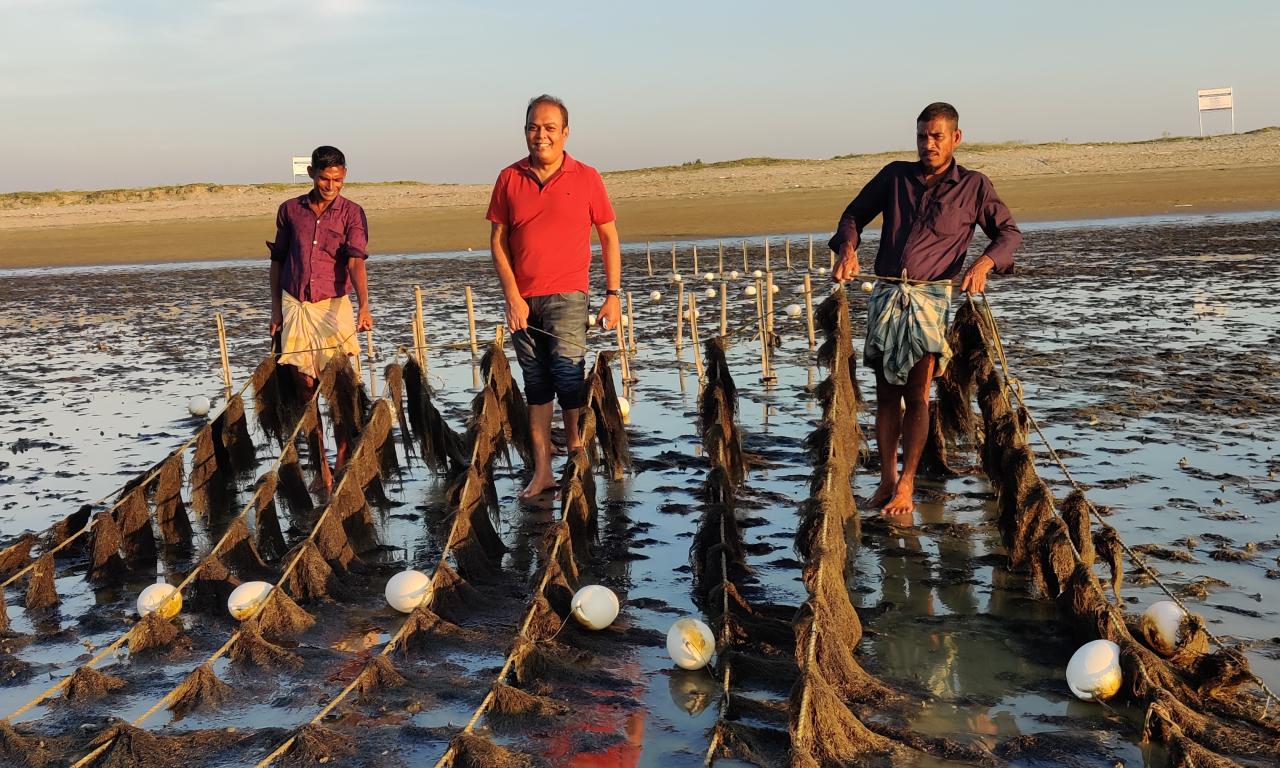
-
WorldFish’s Md Nahiduzzaman discusses his efforts to boost vulnerable fishing community’s resilience to climate change
-
He believes a holistic approach to development can assist fishers and fishing communities in improving their livelihoods, ultimately balancing the ecosystem and community well-being
WorldFish is a global leader in aquatic food systems research and innovation, and science and partnerships are the foundation of our work. Our team delivers robust evidence to policymakers and technological innovations to producers, supply chain actors and consumers to transform food systems. In this series, we profile our accomplished scientists in the spotlight.
Md Nahiduzzaman received his doctorate in fisheries science from Bangladesh Agriculture University in 2011 and he now works as a scientist in the Resilient Small-Scale Fisheries program at WorldFish. He has over twenty years of diverse experience, which has gradually transformed him into a research and development practitioner. His current research interests include fisheries management, livelihood resilience and biodiversity conservation.
What are you currently working on at WorldFish?
I am currently working on a United States Agency for International Development (USAID)-funded project called Enhanced Coastal Fisheries in Bangladesh II (ECOFISH II), which is part of WorldFish's Resilient Small-Scale Fisheries research program. The project is assisting coastal fishing communities in improving socioecological resilience. My role in the project is to increase the resilience of poor fishing communities by boosting their income, strengthening their adaptive capacities and empowering them so that they can contribute to the management of the Bay of Bengal's fisheries and coastal ecosystems.
ECOFISH II has introduced a number of climate-resilient livelihood options for low-income fishers on the Bay of Bengal coast, such as seaweed and green mussel farming. I get poor fishing households to participate in these production systems in order to improve their livelihoods.
What's the most exciting part about your research area?
The most exciting part of my research is figuring out how to strike a balance between livelihoods and biodiversity in the field of blue economic development. I wonder, how can small-scale fishers find a place in the Bay of Bengal's rapidly growing blue economic initiatives and how can we ensure the initiatives’ sustainability? My research will help to protect the human rights of small-scale fishers and their communities, ensuring they maintain rights to their coastal resources while building resilience to climate change.
What's your favorite part about the research process and why?
My favorite aspect of the research is co-creating solutions by involving stakeholders in the process. Interacting with stakeholders provides a learning opportunity and offers insights to co-develop solutions with local communities that will benefit the most from those interventions.
What's your most memorable experience working with fishing communities in Bangladesh?
My most memorable experience is being a part of ECOFISH’s Community Fish Guards (CFGs), a unique initiative to conserve the region’s natural aquatic resources. The CFGs are volunteers recruited from fishing communities and their role is to assist the Department of Fisheries in ensuring compliance with fishing regulations, particularly in hilsa sanctuary areas. These volunteers are passionate about ensuring the sustainable extraction of their community’s resources.
How does your research support the sustainable management of hilsa fisheries?
The project was instrumental in establishing fisheries co-management along the Meghna River system in order to improve the ecosystem and livelihood resilience of resource-dependent people. By boosting compliance with fishing regulations, this collaboration resulted in increased hilsa production and thus additional income for hilsa fishermen. The combined efforts of the fishing communities and various stakeholders in the supply chain, as well as government departments and law enforcement, were at the heart of this success.
What innovation do you think has the most significant potential to improve the livelihoods of fishers and fishing communities?
A holistic approach to development can assist fishers and fishing communities in improving their livelihoods, ultimately balancing the ecosystem and community well-being. To transform fishers' livelihoods, ECOFISH tested a model resilient fishing approach in three fishing villages along the Padma-Meghna River system. The model resilient fishing village is founded on the principles of the Ecosystem Approach to Fisheries Management (EAFM).
Which piece of scientific research are you proudest of?
I contributed to the research on how the well-being of the ecosystem can be translated into social well-being, which will be determined by the efficiency of governance. This is crucial research that can be used to craft policies that ensure there is equitable benefit sharing amongst resource users.
What do you hope your research ultimately achieves?
By promoting fisheries co-management and climate-resilient livelihood options, I hope my research will help improve communities' socioecological and economic resilience, with the aim of benefiting vulnerable fisherfolk and their dependents.
